Cocoa, derived from the cacao bean, is a rich source of antioxidants and has been the subject of increasing research for its potential health benefits, including in the area of cancer treatment. Recent studies suggest that the antioxidants and anti-inflammatory properties of cocoa may help support cancer treatment. This article will explore the role of cocoa in supporting cancer treatment, including its antioxidant content, potential mechanisms of action, and the current research on its effects.
Key Takeaways
- Cocoa is a rich source of antioxidants, particularly flavanols, which may have beneficial effects in supporting cancer treatment.
- Antioxidants play a crucial role in cancer treatment by neutralizing harmful free radicals and reducing oxidative stress.
- Preclinical studies have shown that cocoa and its bioactive compounds exhibit anti-cancer properties, such as inhibiting tumor growth and inducing apoptosis in cancer cells.
- Clinical studies on the effects of cocoa in human cancer patients are limited, but some early-stage trials have reported promising results.
- Incorporating high-quality cocoa products into a balanced, cancer-fighting diet may be a beneficial strategy for those undergoing cancer treatment.
Introduction to Cocoa and Its Potential Health Benefits
Cocoa, derived from the cacao tree (Theobroma cacao), is the key ingredient that gives chocolate its distinctive flavor and aroma. Beyond its culinary applications, cocoa has gained attention for its potential health benefits, thanks to its rich nutritional composition and the presence of various bioactive compounds.
What is Cocoa?
Cocoa is a powder made from the fermented, dried, and roasted seeds of the cacao tree. The cacao tree is native to Central and South America and has been cultivated for centuries, used in various traditional and modern culinary and medicinal applications. Cocoa is an integral part of the production of chocolate, but it can also be enjoyed on its own or incorporated into a variety of food and beverage products.
Nutritional Composition of Cocoa
Cocoa is a nutrient-dense food, containing a wide range of beneficial compounds, including flavanols, polyphenols, and methylxanthines such as theobromine and caffeine. These compounds contribute to the potential health benefits associated with cocoa consumption.
Potential Health Benefits of Cocoa
Emerging research suggests that the bioactive compounds found in cocoa may offer a variety of health benefits, including improved cardiovascular health, enhanced cognitive function, and anti-inflammatory effects. Interestingly, researchers are also exploring the potential role of cocoa in supporting cancer treatment, given its rich antioxidant content and other pharmacological properties.
The Role of Antioxidants in Cancer Treatment
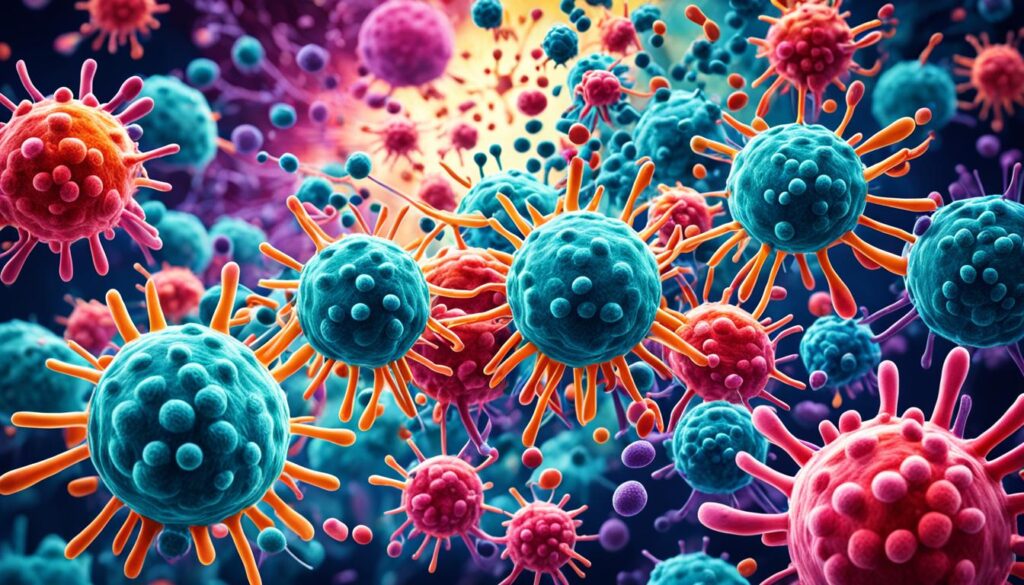
Antioxidants play a crucial role in cancer treatment by neutralizing harmful free radicals and reducing oxidative stress in the body. Free radicals can damage DNA, proteins, and cell membranes, contributing to the development and progression of cancer. By scavenging these free radicals, antioxidants may help mitigate the negative effects of cancer and support the body’s natural defenses.
Understanding Antioxidants and Their Importance
Antioxidants are molecules that can counteract the damaging effects of free radicals, which are unstable and highly reactive compounds produced as a byproduct of various cellular processes. These free radicals can lead to oxidative stress, a major contributor to cancer development and progression. Antioxidants work by neutralizing free radicals, preventing them from causing further harm to cells and DNA.
How Antioxidants Might Support Cancer Treatment
Emerging research suggests that antioxidants may also enhance the effectiveness of cancer treatments, such as chemotherapy and radiation therapy. Antioxidants can protect healthy cells from the damaging effects of these treatments while sensitizing cancer cells to the treatment. This dual-action mechanism may help improve the overall efficacy of cancer therapies and reduce the negative side effects experienced by patients.
Cocoa as a Source of Antioxidants
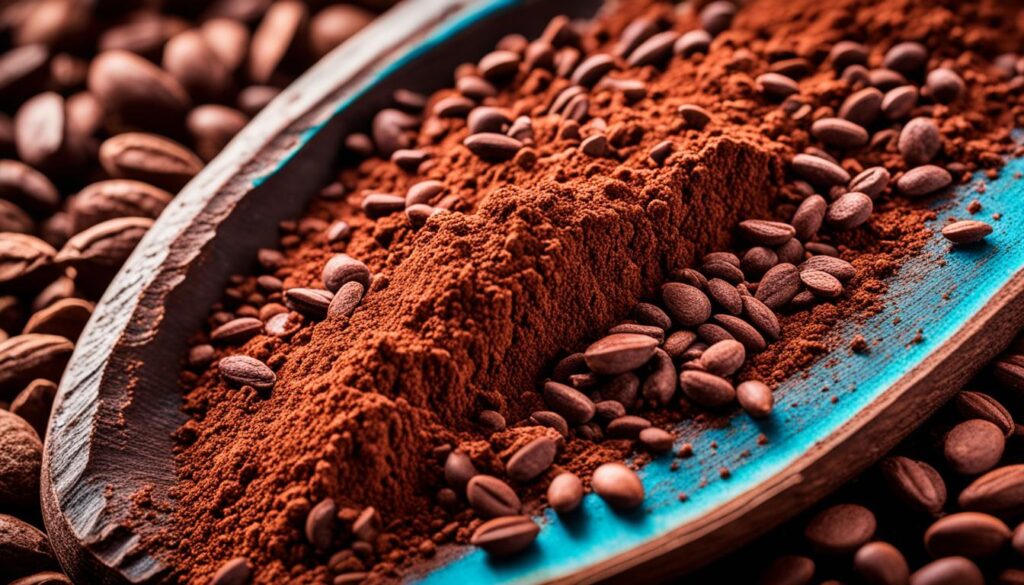
Cocoa, derived from the cacao bean, is a remarkably rich source of antioxidants, particularly a class of compounds known as flavanols. Flavanols, such as epicatechin and catechin, are the primary antioxidants found in cocoa and are responsible for many of its potential health benefits.
Flavanols: The Powerful Antioxidants in Cocoa
These cocoa flavanols have been shown to possess potent free radical-scavenging abilities, making them highly effective at neutralizing harmful antioxidants in cocoa. By protecting cells from oxidative damage, cocoa flavanols may play a crucial role in supporting overall health and potentially aiding in cancer treatment.
Other Antioxidant Compounds in Cocoa
In addition to its impressive flavanol content, cocoa also contains a variety of other antioxidant compounds, including polyphenols, methylxanthines, and vitamins. These other antioxidants in cocoa further contribute to its robust antioxidant profile, offering a comprehensive array of beneficial compounds that may work synergistically to support the body’s defenses.
Can cocoa help in supporting cancer treatment?

Numerous preclinical studies have investigated the potential role of cocoa in supporting cancer treatment. In laboratory and animal studies, cocoa and its bioactive compounds have been shown to exhibit anti-cancer properties, including the ability to inhibit tumor growth, induce apoptosis (programmed cell death) in cancer cells, and prevent the spread of cancer. These effects have been observed in various types of cancer, such as breast, prostate, and colon cancer.
Preclinical Studies on Cocoa and Cancer
The preclinical evidence on the potential of cocoa to help cancer treatment is promising. Studies have demonstrated the ability of cocoa and its compounds, such as flavanols, to suppress the growth and proliferation of cancer cells and enhance the effectiveness of conventional cancer therapies. These findings suggest that cocoa may have a supportive role to play in cancer treatment.
Clinical Studies on Cocoa and Cancer
While the preclinical studies on cocoa and cancer are encouraging, clinical studies on the effects of cocoa in human cancer patients are still limited. However, some early-stage clinical trials have reported promising results, indicating that cocoa may have the potential to support cancer treatment when used in combination with conventional therapies. As the research in this area continues to evolve, more clinical investigations are needed to further understand the role of cocoa in supporting cancer treatment.
Potential Mechanisms of Action
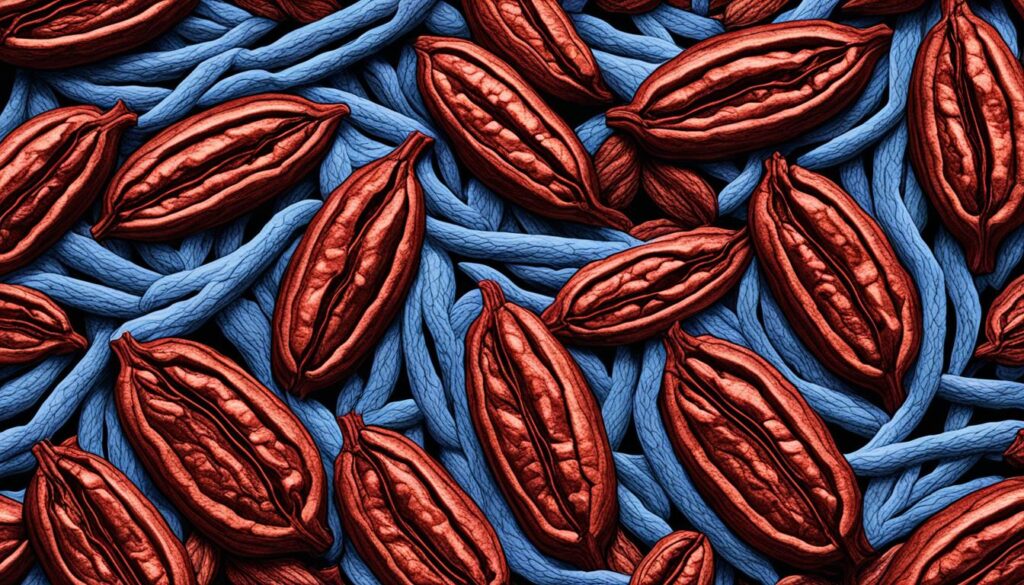
The potential ways in which cocoa may support cancer treatment involve its anti-inflammatory properties, impact on cell signaling pathways, and effects on angiogenesis (the formation of new blood vessels). Cocoa’s high antioxidant content plays a crucial role in these mechanisms, helping to reduce inflammation, a key factor in cancer development and progression.
Anti-inflammatory Properties of Cocoa
The powerful antioxidants found in cocoa, such as flavanols, have been shown to possess potent anti-inflammatory effects. By neutralizing free radicals and reducing oxidative stress, cocoa can help mitigate the inflammatory processes that contribute to cancer growth and metastasis. This anti-inflammatory action may enhance the body’s natural defenses and support the efficacy of cancer treatments.
Cocoa’s Impact on Cell Signaling Pathways
Emerging research indicates that cocoa and its bioactive compounds can modulate various cell signaling pathways involved in cancer cell growth, proliferation, and survival. For example, cocoa has been found to inhibit the activation of pathways like NF-κB and MAPK, which are known to play crucial roles in the progression of certain types of cancer, including breast, prostate, and colon cancer.
Cocoa and Angiogenesis (Formation of New Blood Vessels)
Another potential mechanism by which cocoa may support cancer treatment is through its effects on angiogenesis, the process of forming new blood vessels. Cancerous tumors rely on a constant supply of nutrients and oxygen to grow and spread. Cocoa has been shown to possess anti-angiogenic properties, meaning it can help inhibit the formation of new blood vessels that feed the tumor, effectively starving the cancer cells of essential resources.
Incorporating Cocoa into a Cancer-Fighting Diet
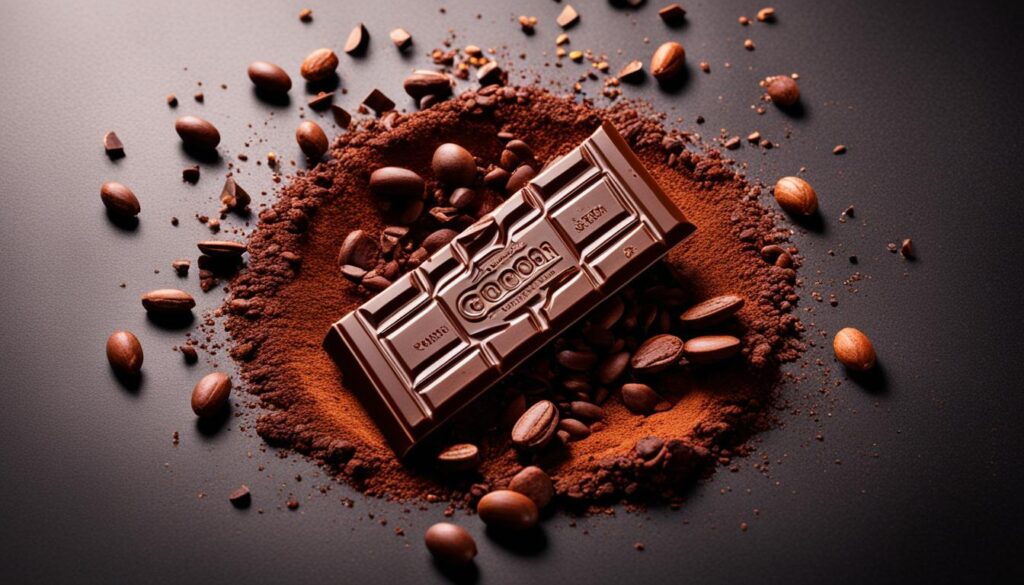
For individuals undergoing cancer treatment or looking to support their overall health, incorporating cocoa into their diet can be a beneficial strategy. Cocoa is available in various forms, each with varying levels of antioxidants, making it an attractive option for those seeking to boost their cancer-fighting efforts.
Forms of Cocoa and Their Antioxidant Levels
Cocoa can be found in a variety of forms, including raw cocoa powder, dark chocolate, and cocoa nibs. Each of these options offers a unique antioxidant profile. Raw cocoa powder, for instance, is typically the most concentrated source of cocoa antioxidants, such as flavanols and polyphenols. Dark chocolate, with its higher cocoa content, also contains a substantial amount of these beneficial compounds. Cocoa nibs, the crushed and roasted cocoa beans, are another option that provides a concentrated dose of cocoa antioxidants.
Tips for Choosing High-Quality Cocoa Products
When selecting cocoa products to incorporate into a cancer-fighting diet, it’s important to choose high-quality, minimally processed options that retain the maximum concentration of beneficial compounds. Look for cocoa products with a high cocoa content, typically 70% or higher, and avoid those with added sugars or other unnecessary additives. Additionally, consider the sourcing and processing methods used, as these can impact the cocoa‘s antioxidant levels and overall quality.
| Cocoa Product | Antioxidant Level | Factors to Consider |
|---|---|---|
| Raw Cocoa Powder | Highest | Look for organic, minimally processed options with no added sugars or fillers. |
| Dark Chocolate | High | Choose dark chocolate with a cocoa content of 70% or higher, and avoid varieties with excessive added sugars. |
| Cocoa Nibs | High | Opt for organic, unsweetened cocoa nibs to maximize the antioxidant benefits. |
By carefully selecting and incorporating these high-quality cocoa products into a balanced, cancer-fighting diet, individuals undergoing cancer treatment or looking to support their overall health may be able to leverage the potential benefits of cocoa‘s antioxidants and other bioactive compounds.
Precautions and Potential Side Effects
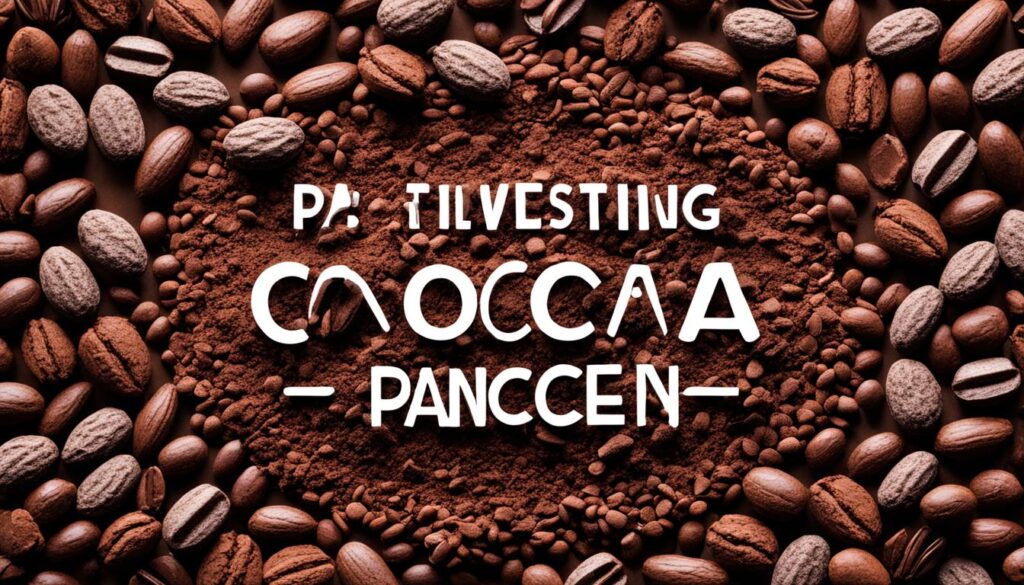
While cocoa and its bioactive compounds are generally well-tolerated, there are some precautions to consider. Cocoa contains stimulants like caffeine and theobromine, which may interact with certain medications, such as those used in cancer treatment. Individuals undergoing cancer treatment should consult with their healthcare provider before incorporating cocoa or chocolate into their diet to ensure there are no potential interactions.
Interactions with Medications
The stimulants in cocoa, including caffeine and theobromine, can potentially interact with various medications, including those used in cancer treatment. This interaction may affect the absorption, metabolism, or effectiveness of the medications. Cocoa and medication interactions are an important consideration for those undergoing cancer therapy, and patients should discuss this with their healthcare providers before adding cocoa to their diet.
Moderation is Key
Additionally, it’s important to consume cocoa in moderation, as excessive intake can lead to side effects like digestive issues, headaches, and sleep disturbances. While the antioxidant and anti-inflammatory properties of cocoa may be beneficial, overconsumption can potentially cause unwanted side effects, especially for individuals with certain medical conditions or those undergoing cancer treatment.
By being mindful of potential interactions and consuming cocoa in moderation, individuals can safely incorporate this antioxidant-rich ingredient into a balanced, cancer-fighting diet, while minimizing the risk of adverse side effects.
Other Lifestyle Factors for Cancer Prevention

While the potential benefits of cocoa in supporting cancer treatment are promising, it’s important to note that a comprehensive approach to cancer prevention and management involves a combination of lifestyle factors. Maintaining a balanced, nutrient-dense diet with a variety of fruits, vegetables, whole grains, and lean proteins can help strengthen the body’s natural defenses against cancer. Regular physical activity has also been shown to reduce the risk of certain types of cancer and improve overall health.
Balanced Diet and Exercise
Adopting a balanced diet and incorporating regular exercise into one’s lifestyle are crucial components of cancer prevention. A diet rich in a variety of colorful fruits and vegetables, whole grains, and lean proteins can provide the body with the essential nutrients, antioxidants, and phytochemicals needed to support the immune system and reduce inflammation, which are key factors in cancer development.
Stress Management
In addition to a healthy diet and physical activity, managing stress is another important lifestyle factor for cancer prevention. Chronic stress can have a detrimental impact on the body’s immune function and can contribute to the development and progression of cancer. Techniques such as meditation, yoga, or counseling can help individuals effectively manage stress, supporting the body’s natural defenses and reducing the negative impact of stress on cancer outcomes.
Ongoing Research and Future Directions
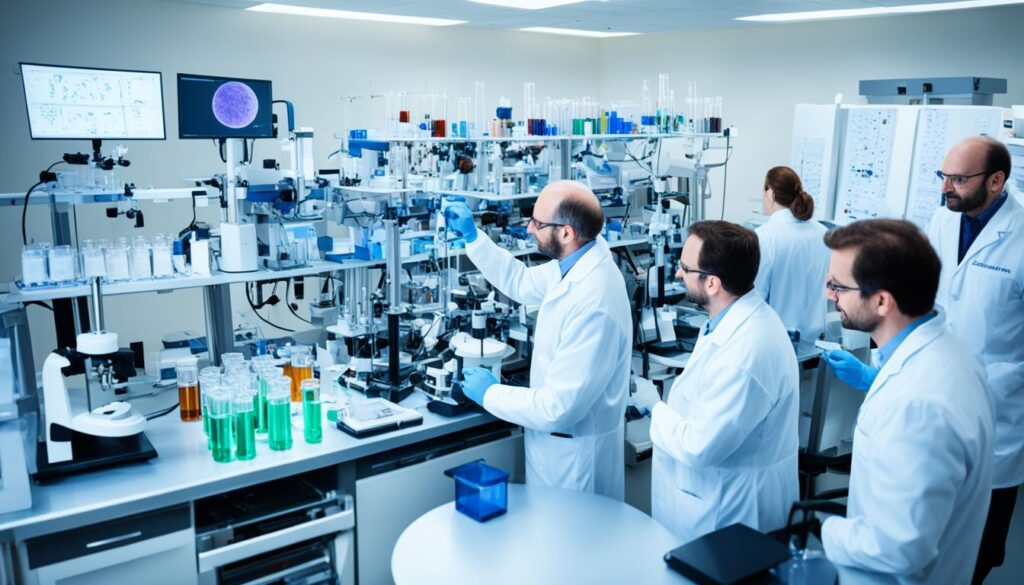
As the ongoing research on cocoa and cancer continues to evolve, there are several clinical trials on cocoa and cancer as well as potential areas for future research on cocoa and cancer. Currently, a few clinical trials are investigating the effects of cocoa or cocoa-derived compounds in various types of cancer, including prostate, breast, and colorectal cancer. These studies aim to further understand the safety and efficacy of incorporating cocoa into cancer treatment regimens.
Current Clinical Trials on Cocoa and Cancer
One such trial, published in the National Institutes of Health, is exploring the potential benefits of a cocoa-based supplement in men with prostate cancer. Another study is examining the role of cocoa in supporting breast cancer treatment, while a third trial is investigating the effects of cocoa on colorectal cancer outcomes.
Potential Areas of Future Research
Going forward, researchers may also explore the synergistic effects of cocoa with conventional cancer therapies, the optimal dosage and formulations of cocoa-based interventions, and the specific mechanisms by which cocoa’s bioactive compounds exert their anti-cancer properties. This ongoing research on cocoa and cancer could lead to a better understanding of how this versatile ingredient can be leveraged to support cancer treatment and improve patient outcomes.
Conclusion
In conclusion, the existing research suggests that cocoa, with its rich antioxidant content and potential anti-inflammatory properties, may have a supportive role to play in cancer treatment. Preclinical studies have demonstrated promising anti-cancer effects of cocoa and its bioactive compounds, and early-stage clinical trials have reported encouraging results. While more research is needed to fully understand the extent and mechanisms of cocoa’s benefits in cancer care, incorporating cocoa-based foods and beverages into a balanced, cancer-fighting diet may be a simple and potentially beneficial strategy for those undergoing cancer treatment.
As highlighted by a study by Martín et al. in 2013, the potential for preventive effects of cocoa and cocoa polyphenols in cancer has been a topic of increasing interest. Additionally, research has shown that cocoa possesses higher antioxidant capacity compared to teas and red wine, as per the findings of a study by Lee et al. in 2003.
However, as with any dietary supplement, it’s important to consult with a healthcare provider to ensure safety and appropriate usage when incorporating cocoa into a cancer treatment regimen. By maintaining a holistic approach that combines the potential benefits of cocoa with other lifestyle factors, such as a balanced diet and regular exercise, individuals undergoing cancer treatment may find additional support in their journey towards better health and well-being.
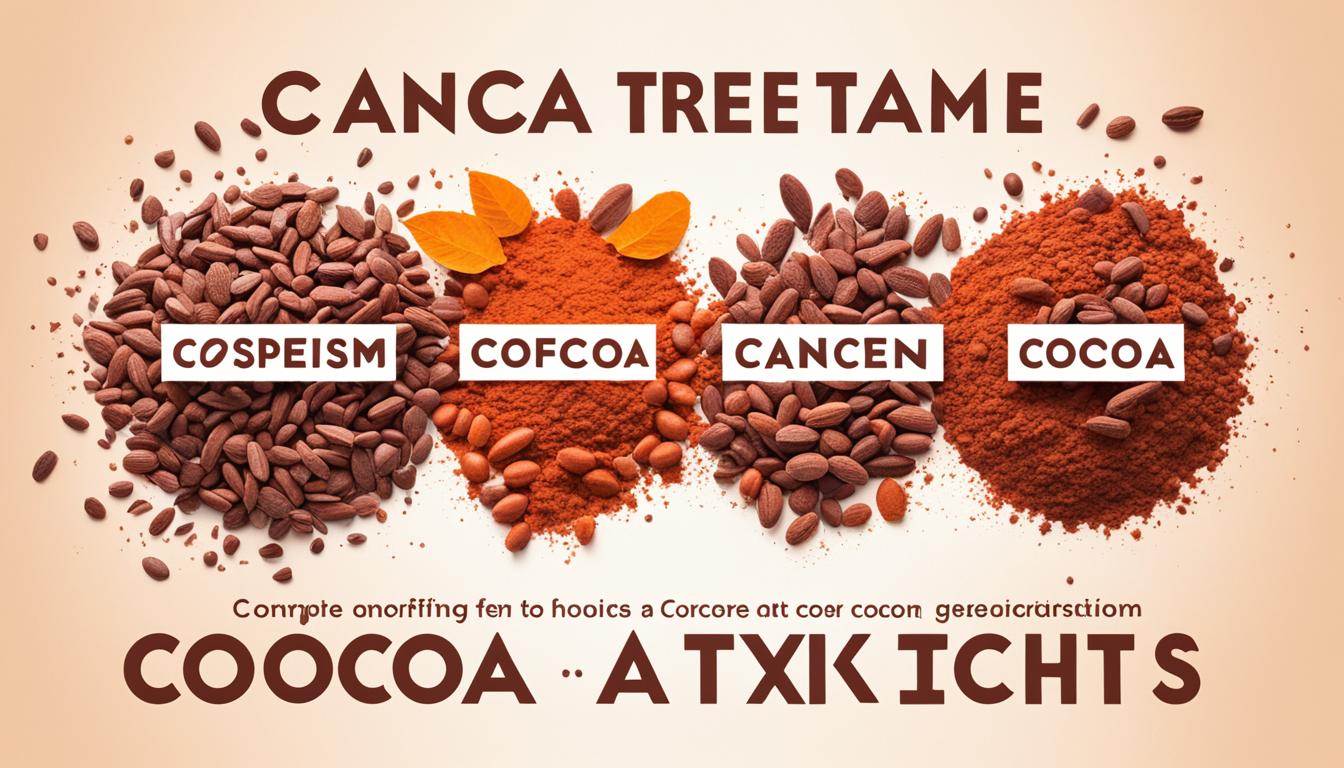
Leave a Reply